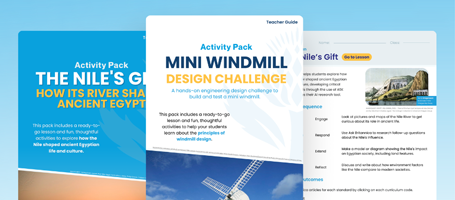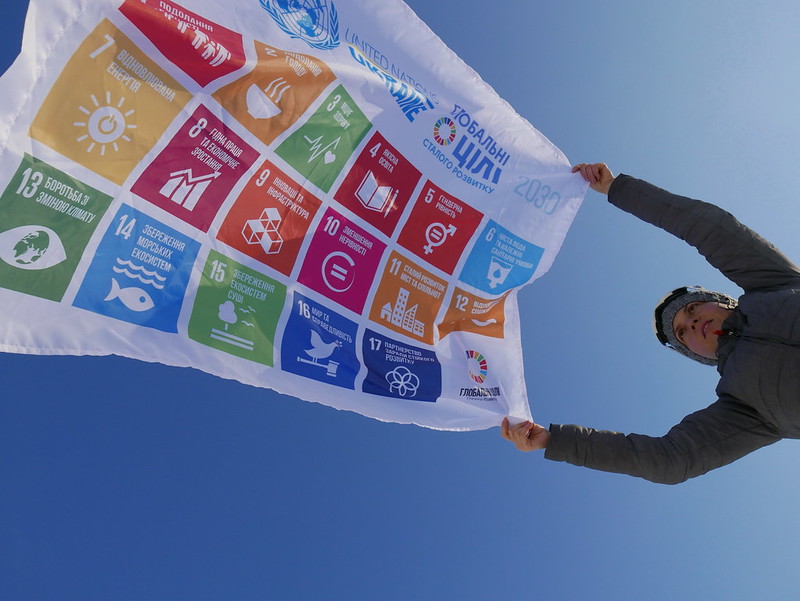Learning about the UN SDGs equips students to understand critical global issues and their role in addressing them.
Competencies like global citizenship, environmental stewardship, digital literacy, and the development of critical and creative thinking are no longer merely nice-to-haves. They’re widely recognised to be requisite skills in a future marked by rapid technological change, evolving job markets, and a growing emphasis on sustainable and ethical decision-making.
Focusing on these skills now will ensure that our students grow into agile problem solvers with the global awareness to succeed in the workplaces and societies of the future.
Embracing Global Citizenship in Education
Global citizenship underscores our world’s interconnectedness. It cultivates an understanding that our local and global actions significantly impact others and the planet. By teaching global citizenship, educators help students develop empathy, cultural awareness, and a sense of responsibility towards people and environments worldwide.
The essential elements for global citizenship education, which link directly to the skills needed for the future, are:
- Promoting Cultural Understanding: Encouraging students to appreciate diverse cultures and perspectives, fostering mutual respect, and reducing prejudices.
- Encouraging Social Responsibility: Enlightening students about global challenges such as poverty, inequality, and climate change, motivating them to contribute positively to society.
- Developing Critical Thinking: Enhancing students’ abilities to analyse complex global issues, thereby improving their problem-solving and decision-making skills.
Integrating the UN Sustainable Development Goals (SDGs) into Teaching
The United Nations’ Sustainable Development Goals (SDGs) represent a universal call to action to end poverty, protect the planet, and ensure peace and prosperity. These 17 goals offer educators a framework to address pressing global challenges in our curriculum.
Learning about the SDGs equips students to understand critical global issues and their role in addressing them. This exploration provides insights into the complexities of these challenges and the necessity of sustainable development.
Classroom Example
Innovative STEM Approaches to Teaching Goal 6: Clean Water and Sanitation
To foster digital literacy and creative thinking skills, some educators are innovating by teaching Goal 6 of the UN SDGs through STEM inquiry, supported by digital technology. This methodology not only deepens students’ understanding of vital environmental issues but also strengthens their digital skills and global consciousness.
Let’s take a look to see how this was implemented in a middle school classroom:
Initiation with World Water Day (22 March):
The project commenced with students exploring multimedia resources about the global water crisis on digital platforms and applying high-order thinking skills for a deeper understanding of the issues.
Selection during International Water Week
Students used digital tools like online surveys, discussions, and data debates to choose specific water issues, emphasising the importance of high-order thinking in assessing different topics.
Exploration with UN SDG Case Studies
This phase included analysing case studies using graphic organisers and comparing global and local contexts, promoting critical thinking and creative solutions.
Formulation with Digital Mind Maps
Students synthesised their findings and formulated hypotheses, using digital mind maps to brainstorm and develop innovative approaches to water management.
Collection through Experimentation and Data Visualisation
In this phase, students conducted experiments and used digital tools to visualise data, applying high-order thinking to interpret results and refine hypotheses.
STEM Design Challenges
To further deepen understanding, students were presented with four distinct STEM design challenges, each addressing a different aspect of water and sanitation issues:
- Water Purification System Design
- Smart Water Usage Monitor
- Rainwater Harvesting Model
- Eco-Friendly Sanitation Solution
These challenges enabled students to apply their STEM knowledge creatively to develop practical solutions, catering to diverse interests and strengths.
Presentation in a STEM Design Challenge
For World Water Day, students prepared presentations for a chosen STEM Design Challenge, creating digital videos and posters to communicate their findings and solutions effectively and creatively to an authentic audience.
Evaluation during International Water Week
The project concluded with reflective sessions, where students evaluated their learning journey, applying high-order thinking to critically assess their work and effectively peer assess each other.
Through this guided inquiry process, students gained a comprehensive understanding of water and sanitation issues within both global and local frameworks. The integration of UN SDG case studies, digital technology, and alignment with significant global events like World Water Day and International Water Week provided a rich, contextual learning experience. This approach not only deepened their knowledge of Goal 6 but also fostered their development as informed, globally-conscious citizens, ready to tackle the world’s most pressing challenges.
Featured image Sustainable Development Goals by UN Ukraine on Flickr. CC BY-ND 2.0 DEED.
Britannica is committed to creating high-quality teaching and learning solutions that spark students’ curiosity about the world around them. Resources like Britannica School engage learners through rich, immersive content that allows them to explore different cultures, places, and global events, and builds awareness of the wider world. Expedition: Learn! helps students connect scientific knowledge to everyday life and the world around them, through a collection of ready-made science lessons.
More Educator Resources
Sign up with your email for more free resources from Britannica.

